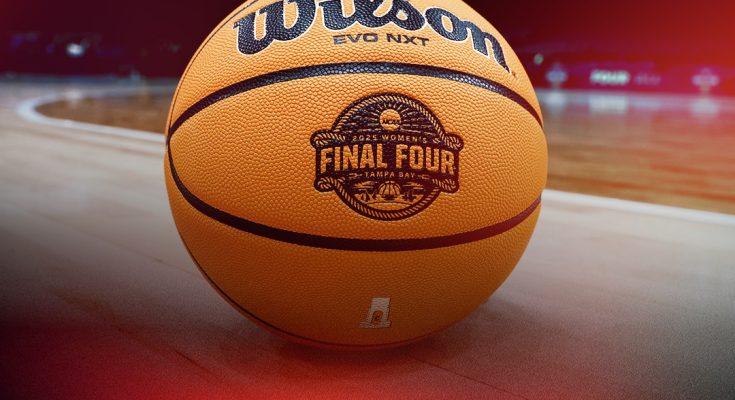The NCAA has confirmed that it is investigating 13 additional male student-athletes from six different institutions for allegedly violating sports betting regulations, a development that has captured the attention of the college sports community and sparked widespread discussion about the challenges of maintaining integrity in collegiate athletics. The NCAA’s announcement underscores the seriousness with which the organization approaches gambling violations, reflecting its longstanding commitment to ensuring fair competition and protecting the integrity of college sports. Sports betting has grown exponentially in the United States in recent years, driven by legal changes, technological advancements, and cultural acceptance, creating new pressures and potential pitfalls for student-athletes who are navigating a complex landscape of rules and expectations.
The NCAA’s regulations regarding sports wagering are unequivocal. Student-athletes are prohibited from betting on any collegiate sporting event, particularly those in which they participate, and in many cases, wagering on other sports can also result in penalties. These rules exist not merely to prevent financial misconduct but to protect the credibility of the game, ensuring that contests are decided solely by athletic skill and effort rather than external financial influences. By investigating these 13 student-athletes, the NCAA is signaling that it will act decisively whenever there is evidence or suspicion that rules have been violated, regardless of the size of the program or the prominence of the athletes involved.
At this point, the identities of the student-athletes and the institutions involved have not been disclosed publicly. NCAA investigations are typically meticulous and multifaceted, requiring careful review of communications, financial transactions, and betting records. In addition, investigators may conduct interviews with athletes, coaches, and support staff to determine whether the alleged violations were intentional and to understand the extent of involvement. The increasing complexity of modern betting platforms, including online sportsbooks, mobile applications, and informal peer-to-peer wagering, complicates these investigations, as enforcement staff must trace and confirm activity across multiple channels to establish a clear picture of what occurred.
The scope of this investigation, spanning six institutions, highlights the potential breadth of sports betting violations within collegiate athletics. While many previous cases involved individual athletes or single programs, the current situation suggests that gambling may be a broader concern that requires ongoing vigilance. Schools are expected to provide education, guidance, and oversight to ensure that student-athletes understand NCAA regulations and the consequences of violations. This responsibility includes formal training sessions, informational resources, and consistent communication about the ethical and legal implications of wagering on sports. Compliance officers play a crucial role in monitoring activity, identifying potential risks, and fostering a culture in which adherence to rules is emphasized and reinforced.
The broader context for this investigation is the rapid expansion of sports betting in the United States following the Supreme Court’s 2018 decision to strike down the federal ban on sports wagering. Since then, many states have legalized and regulated sports betting, creating a lucrative industry that is accessible to millions of fans. While these developments have brought economic benefits and increased engagement for professional sports, they have also introduced new challenges for the NCAA, which must balance the legal realities of betting with its mandate to protect amateur athletics. Student-athletes, despite being legally prohibited from gambling under NCAA rules, are increasingly exposed to betting opportunities through friends, social media, and digital platforms, making education and compliance all the more essential.
The consequences of gambling violations can be severe for student-athletes. Depending on the nature and extent of the infraction, athletes may face suspension, loss of scholarship eligibility, or permanent disqualification from competition. These penalties are intended not only to enforce compliance but also to preserve the fairness and integrity of competition. Beyond athletic consequences, involvement in gambling violations can have long-term implications for a student-athlete’s reputation and professional prospects. For those seeking to pursue a career in professional sports, confirmed violations can raise red flags for teams, scouts, and agents, potentially limiting opportunities at the next level.
Institutions themselves are also affected when student-athletes engage in gambling violations. Programs may face NCAA sanctions, including probation, reductions in scholarships, or restrictions on postseason participation. Even in cases where schools are not found to be directly culpable, public perception can be impacted, potentially affecting recruiting efforts, donor relationships, and overall program credibility. For athletic departments, these cases serve as a reminder of the importance of rigorous compliance protocols, proactive education, and diligent monitoring of student-athlete activity. The reputational and operational risks associated with violations underscore why institutions invest heavily in compliance staff and training programs.
Education is a central element of the NCAA’s strategy to prevent gambling violations. Student-athletes are provided with guidance on NCAA regulations, ethical decision-making, and the risks associated with betting on sports. Training programs often include interactive workshops, written materials, and access to compliance officers who can answer questions and offer advice. The goal is to foster a culture in which athletes understand the importance of integrity, recognize the potential consequences of violations, and are empowered to make responsible decisions. By prioritizing education, the NCAA seeks to reduce the likelihood of infractions while reinforcing ethical standards that extend beyond the athletic arena.
The public reaction to announcements like this is often intense, as fans, media, and stakeholders speculate about the identities of the athletes involved, the nature of the violations, and the impact on team performance. Social media platforms amplify these discussions, creating both opportunities for transparency and challenges in managing misinformation. Athletic departments and the NCAA must carefully navigate these dynamics, balancing the need for openness with the rights of the individuals under investigation. Premature speculation or inaccurate reporting can compound the impact of violations, further emphasizing the need for a deliberate, evidence-based approach to enforcement.
The investigation also underscores the ethical dimensions of sports betting within collegiate athletics. Student-athletes are often held to high standards of conduct, both on and off the field, as they serve as representatives of their institutions and role models within their communities. Betting on sports can create conflicts of interest, compromise the perception of fair play, and diminish public trust in college athletics. By enforcing strict regulations and investigating potential violations, the NCAA reinforces the values of integrity, personal responsibility, and ethical decision-making that are foundational to the mission of collegiate sports.
Technological advancements and the proliferation of digital betting platforms have created additional challenges for monitoring compliance. Online sportsbooks, mobile apps, and social media networks provide student-athletes with new ways to engage in betting, often with little oversight. Athletic departments are increasingly tasked with monitoring digital activity, identifying potential violations, and providing education on responsible behavior. The complexity of these challenges highlights the importance of robust compliance programs that combine education, technology, and active monitoring to mitigate risk and ensure adherence to NCAA rules.
Historically, NCAA gambling investigations have varied in scope and severity. Some have involved individual athletes who placed minor bets, while others have uncovered more extensive schemes or systemic compliance issues. Penalties in past cases have ranged from brief suspensions to permanent ineligibility, depending on the evidence and the degree of involvement. Institutions implicated in multiple violations have sometimes faced additional scrutiny, including probation, scholarship reductions, or other sanctions designed to strengthen compliance and prevent future infractions. The current investigation, involving multiple athletes across several schools, highlights the potential for broader systemic issues and underscores the need for vigilance at all levels.
The legal framework surrounding sports betting adds another layer of complexity. While NCAA rules are distinct from state or federal laws, student-athletes may also face legal consequences if they engage in betting activities that violate local statutes. This dual framework requires athletes to navigate both organizational regulations and legal requirements, reinforcing the importance of education and awareness. Athletic departments play a key role in ensuring that student-athletes understand their obligations under both NCAA rules and applicable law, providing guidance that protects both the individual and the institution.
Looking forward, the NCAA is likely to continue expanding its efforts to monitor, educate, and enforce compliance regarding sports betting. The organization has invested in technology, partnerships, and educational programs to identify potential violations more efficiently and provide student-athletes with the tools and knowledge to make informed decisions. Proactive monitoring, coupled with clear consequences for infractions, is central to preserving the integrity of collegiate athletics and maintaining public confidence in competition. As the prevalence of legal sports wagering continues to grow, these efforts will become increasingly important in safeguarding the fairness and credibility of college sports.
In conclusion, the NCAA’s investigation into 13 male student-athletes from six different institutions for alleged sports betting violations highlights the ongoing challenges of maintaining integrity in collegiate athletics. The situation illustrates the complex interplay between legal sports betting, NCAA regulations, and ethical expectations for student-athletes. While details about the individuals and schools involved remain limited, the scope of the investigation underscores the seriousness with which the NCAA addresses gambling violations and the potential consequences for athletes and programs alike. By enforcing rules, emphasizing education, and promoting ethical decision-making, the NCAA seeks to protect the credibility of competition, uphold public trust, and ensure that collegiate sports continue to reflect principles of fairness, responsibility, and integrity. As developments unfold, all eyes will be on the organization, the institutions, and the athletes involved, as the investigation continues to shape the conversation about gambling, compliance, and the future of college athletics



